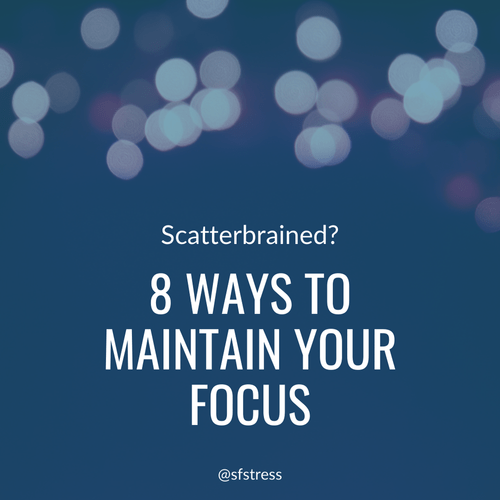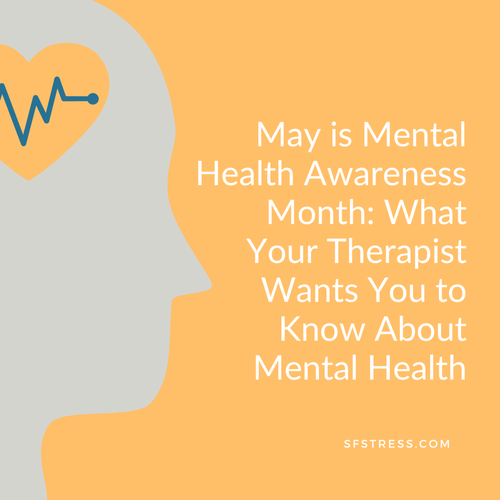How is your concentration? Have you found it hard to focus on what is important because you feel scattered? You’re not alone!
We live in unprecedented times where being pulled in many directions while being bombarded with information and stimulation is common.
Gone are the days when you could just focus on one thing at a time. Now, there is a constant interruption from your phone, which makes it hard to stay focused and know what’s most important in life.
The secret is to be in control of what you focus on. While it’s impossible to avoid distractions, you can learn how to focus your attention back on the things that matter most to you.
There is A LOT Battling for Your Attention
It’s hard to get through the day without a series of alerts letting you know you’ve got mail, a voice message, an urgent text, or something else vying for your attention. And if you’re like most people, you can’t resist the urge to check right away – and this behavior seriously interrupts your focus.
If you don’t know how to say no, or respond without getting sucked in, it’s easy to lose your sense of control.
Living in a world where contact is easier than ever, also has its setbacks. Each time someone tries to connect with you, they don’t realize everything else you’ve got going on.
We live in a time where busyness is a badge of honor, and multi-tasking is considered a top-tier skill, but the pressure to respond and connect can keep you from being focused on one thing at a time.
Some people are so tuned into what’s going on that it’s challenging to find time to focus on themselves. They feel they don’t have the luxury of slowing down or prioritizing their own needs.
How to Manage Your Scattered Mind
Managing scatter-brainedness is about finding balance with everything vying for your attention. It starts with taking good care of yourself, so you have the energy to concentrate on what matters.
Here are some strategies to help you manage your scattered mind:
1. Create FOCUS Time:
Schedule an hour or two each day for activities that require focused attention. Whether studying for a test, working on a project, brainstorming ideas with a colleague, or simply reading a book, carving out this time each day helps keep you focused and engaged.
Scheduling FOCUS Time is essential for managing your scattered mind because it forces you to engage in activities that require concentration. Your mind can’t wander if your schedule says you’re focusing on X between 9-11 AM every day. It’s a great strategy for staying present and productive throughout your day.
2. Take Notes:
Taking notes is an excellent way to stay focused on what you’re learning and studying, but it can also help manage your scattered thoughts. When we take notes, we engage different parts of the brain and muscle memory, which helps us focus more intently on the task at hand.
Taking notes also helps us retain information better, primarily when written down. Of course, with the advent of smartphones, taking physical notes isn’t always an option, but there are many apps available to help you take digital notes on your phone or tablet. Some even allow you to record lectures and upload them to your notes, which is super helpful for capturing information and staying focused.
3. Reduce Overstimulation:
Removing overstimulating triggers can help you manage scatter-brainedness by removing distractions and giving you the chance to calm your mind. So whether it’s turning off electronics, getting outside, or listening to relaxing music, find a few things that help you relax and focus on what’s most important.
Over-stimming can overtax your mind and make it harder to concentrate. When we’re overstimulated, we become distracted by everything around us—including ideas for other things we’d rather be doing—instead of focusing on one activity at a time. For some people, it can be helpful to remove themselves from overstimulating environments and put their energies toward more fulfilling things.
4. Manage Your Time:
Everyone’s schedule is different, but most of us have the same blocks of time in our day. So challenge yourself to use your time wisely and prioritize activities that help you meet your goals, such as studying, exercising, and socializing.
Prioritizing activities that help us be productive and effective is important for staying focused throughout the day. It’s not always easy to manage your time so you can study for an exam, work on a project, or meet with friends. But scheduling these things helps you stay focused—and it’s more productive than letting distractions and last-minute rushes rule your day.
5. Exercise:
Getting your heart rate up can help you manage your scattered mind, whether it’s a quick walk around the block or going for a jog. Exercise helps release endorphins that improve mood, energy levels, and mental focus. It also helps you sleep better at night, which can help manage your mind’s tendency to race when it should be winding down.
Moving your body helps release feel-good endorphins that boost energy levels and mood, which is why it’s so helpful for managing mental fatigue. And exercise—even just a quick walk around the block or jogging in place—can help lull you to sleep. It also helps manage stress, a significant cause of mental fatigue and scattered thinking.
6. Meditate:
Many people turn to meditation to calm their minds and relax. For those with ADHD or ADD, it can be especially useful to focus the mind and remain present at the moment. If you’re new to meditation, it might be helpful to take a class or watch videos online that teach you the basic techniques and provide guided exercises for managing your scattered mind.
7. Practice Mindfulness:
Mindfulness is about focusing on what’s happening right now rather than letting the past or future dictate how we experience life. It can help manage distractedness by slowing down the racing thoughts that keep us from staying focused on one task at a time. Practicing mindfulness allows you to stay in the moment and block out distractions.
Staying in the moment helps manage scattered thinking because it takes your mind off things outside of what you’re doing. Of course, it doesn’t mean you can’t consider the past or future, but it does require you to stay focused in this moment.
8. Take a Deep Breath, It’s Time to Get Focused
Feeling scattered can make it hard to know where to put your emphasis. It’s best to start by stopping anything that is not vital. Taking a deep breath and realizing you can’t do it all right now can help. Realizing you feel scattered but aren’t sure where to start for your focus can help you stop and evaluate your next steps. From there, you can start to narrow your focus and boost your production.



